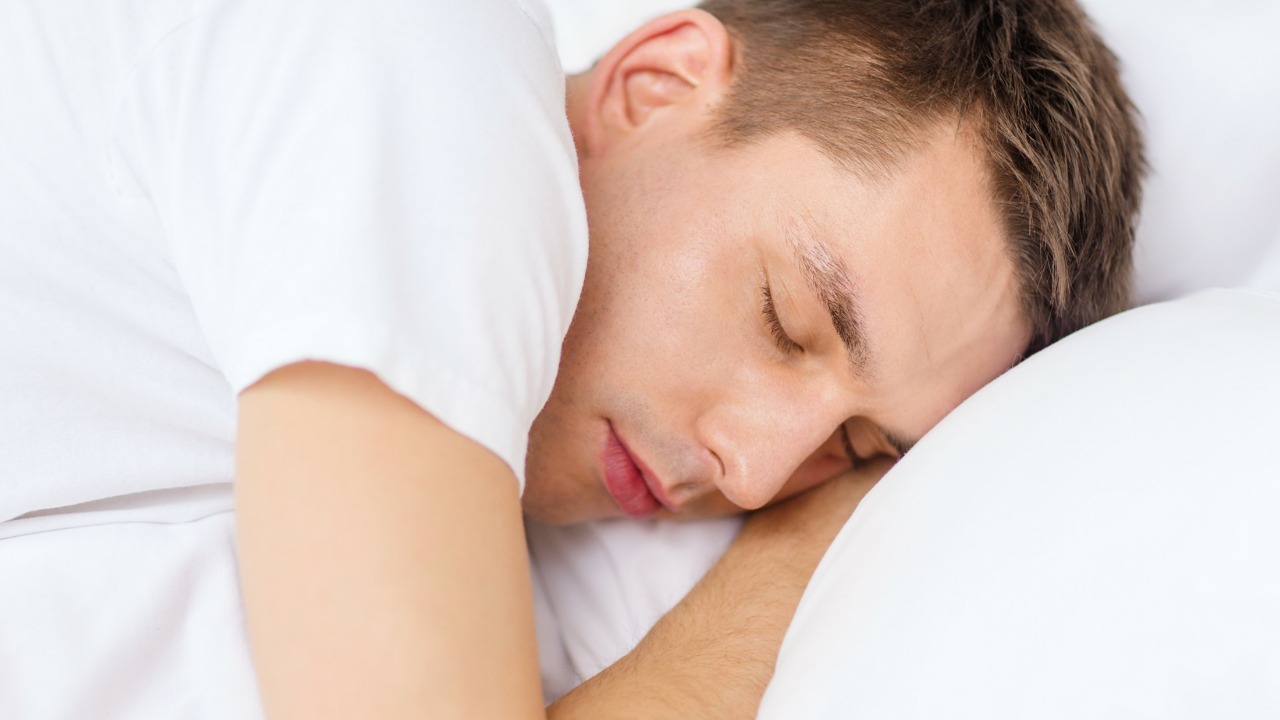When trying to lose fat, people rarely think about their sleep. They think about needing to exercise more or eat healthier. These are both good things, but they’re not the complete picture.
Since the beginning, I’ve been trying to teach people this equation:
EXERCISE + NUTRITION + SLEEP = FITNESS
I recently mentioned this equation on Solid Steps radio and was hoping to talk about it on Compass Radio, but we ran out of time. You see, while exercise and nutrition get all the attention, sleep flies under the radar.
But if you aren’t giving your body the rest it needs, among other things, it could be making you fat. This is in part to two of the many hormones our sleep regulates: ghrelin and leptin.
Sleep Hormone: Ghrelin
Ghrelin (pronounced GREL-in) is also known as the “hunger hormone.” As the this nickname suggests, ghrelin helps regulate appetite.
Increased ghrelin = Increased hunger
This nickname, however, is a little misleading in that ghrelin does more than just regulate appetite, it also plays a part in regulating energy and therefore, fat storage. Obviously, our appetites and the way our bodies store fat will make a huge difference in how we gain and lose weight.
Sleep Hormone: Leptin
Leptin also affects appetite. But rather than regulating appetite, it helps detect fullness or satiation (hence the nickname, the “satiety hormone.”)
Decreased leptin = Decreased ability to sense fullness
As you may have guessed, just like other hormones, leptin has more than one function and each function it does have, plays a role in another function. For leptin, because it affects satiation, it also plays a role in regulating fat stores and energy expenditure.
Ghrelin and Leptin and Sleep
So you may be thinking, “This is all really interesting but what does it have to do with sleep?”
Well, since these hormones are regulated in our sleep, then our lack of sleep will affect how thoroughly they can be regulated.
What this means specifically for you, we can’t say because we are all different. But a study in 2012 showed that getting less than 6 hours of sleep a night increases ghrelin AND decreases leptin.
In other words, you are both HUNGRIER and have a HARDER time getting full. The means excess calories from being hungrier AND excess calories from not sensing satiation soon.
It’s a double-whammy of awful.
TIP: You can set your alarm for any time your little heart desires, this includes a night time alarm. Set it for 10:30 p.m. and when it goes off, go to bed. No hitting the snooze button either!
Now like I said, you may be getting 6 hours and not be having an issue (that you’re aware of) because everybody’s body is different. The studies would back you up as some have shown it takes 5 hours or less.
But why push it? There are thousands of wonderful things happening in your sleep and you literally are doing nothing to benefit from them.
Poor Sleep’s Obvious Temptation
Okay, let’s say for argument sake that your leptin and ghrelin levels are perfectly normal on 5 hours of sleep a night. Have you stopped to consider that during the 2-3 extra hours you’re awake (as compared to the recommended 7-8 hours), you’re like to eat more simply by the fact that, well, you’re awake?
In other words, because you have more time on your hands, you’re more likely to find your way into the kitchen and eat food you don’t necessarily need. Whether it’s out of boredom, entertainment, or opportunity, you’re taking in calories you don’t need.
Is Your Sleep Making You Fat: Conclusion
I have two challenges for you:
- Start including “sleep” in your fitness equation. Adopt the mindset that fitness is more than exercise and nutrition. Embrace the rejuvenating function that sleep provides and include it in your plan to get and stay fit.
- Turn off Netflix. Put down that book. Get off of Facebook. You are an athlete and you need to start thinking like one. This includes exercising the discipline to put margin in your life to give yourself the rest your body craves.
At the end of the day, you won’t get more bang for your fitness buck then getting some good old-fashioned shuteye.
SO WHAT ABOUT YOU… HOW MUCH SLEEP ARE YOU GETTING? HAVE YOU NOTICED A DIFFERENCE IN YOUR HUNGER AND/OR SATIATION WHEN YOU DON’T GET ENOUGH SLEEP? ARE YOU MAKING SLEEP A PRIORITY IN YOUR LIFE? WHY OR WHY NOT?


